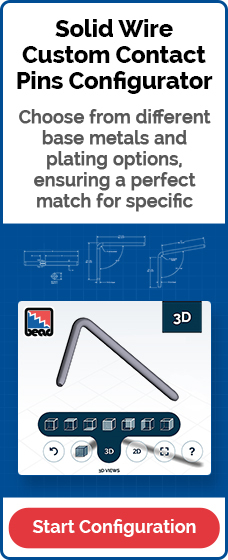Did you know that every vehicle coming off an assembly line carries approximately 150 pounds of electronic and electrical wiring and circuitry? That's a lot of connectors and contact pins that are expected to work without fault for years.
This process is important for ensuring that all parts produced for vehicles meet function, safety, and quality standards. Keep reading to learn more about the production part approval process (PPAP) and how it can help your business.
What Is the Production Part Approval Process (PPAP)?
The Production Part Approval Process (PPAP) is the industry standard for approving production parts. The process includes a series of activities, from initial design and development to final release for production.
The PPAP is important because it helps to ensure that parts meet all customer requirements. This includes things like quality, function, safety, and the supply chain.
It also helps to ensure that parts are produced consistently and meet regulatory requirements. The PPAP can help to prevent issues like recalls, customer complaints, and production problems.
In addition, the PPAP can help to improve communication between the supplier and the customer. It can also help to improve the quality of the parts that are produced. as well as the efficiency of the production process.
Overall, the PPAP is an important tool for ensuring that parts meet all customer requirements.

When and How Is a PPAP Performed?
A PPAP, or Production Part Approval Process, is a quality control procedure used in the automotive industry. It is typically performed during the design, development, and approval phases of a new product.
But it can also be used for existing products that are being updated or modified. The process begins with a review of customer requirements. This is followed by the development of a prototype or pre-production part.
The part is then tested to ensure it meets all requirements. Once the part passes all tests, it is approved for production.
What Are the Benefits of PPAP?
The PPAP is an important quality assurance step that helps to ensure that parts are produced to meet exact specifications. But there are many additional benefits to using the PPAP process. These include:
Improved Quality
Achieving high levels of quality is essential for any manufacturing company. Not only does it lead to satisfied customers, but it also reduces the risk of costly warranty claims.
One way to ensure that parts meet all customer requirements is to carefully control the manufacturing process. This means closely monitoring each step, from raw materials to final assembly, to ensure that all tolerances are met.
Regular testing can also help to identify any potential issues before they become problems. By taking these steps, companies can help to ensure that their products meet the highest standards of quality.
Reduced Costs
It's no secret that the cost of making a product is often a major determinant of its overall success. For example, if the cost of making a widget is too high, it may price the widget out of the market, resulting in reduced sales and lower profits.
That's why it's so important for manufacturers to keep costs down throughout the product development process. One way to do this is through the use of the Production Part Approval Process, or PPAP.
PPAP is a quality control tool that helps to catch errors early in the design process before they result in costly mistakes further down the line.
By avoiding expensive redesigns and scrap charges, PPAP can help to keep costs down and improve profitability. In today's competitive marketplace, every little bit helps.
Improved Communication
Good communication is essential for any team to function effectively. However, it can often be a challenge to ensure that everyone is on the same page, especially when there are multiple stakeholders involved.
The PPAP process helps to improve communication between the design team, engineers, and production staff. This ensures that everyone is working towards the same goal.
By clearly defining the roles and responsibilities of each team member, PPAP helps to avoid misunderstandings and miscommunication.
In addition, regular meetings and reviews help to keep everyone up to date on the latest developments.
As a result, the PPAP process can play a vital role in improving communication and ensuring that all team members are working towards the same goal.
Improved Product Reliability
Reliable products are essential for any business, but they can be difficult to achieve. They must design parts correctly and manufacture to precise tolerances to function properly.
In addition, the assembly process must be carefully monitored to ensure that no defective parts are used. PPAP, or the Production Part Approval Process, is a set of guidelines that can help to ensure product reliability.
By following these guidelines, businesses can reduce the likelihood of defective parts being used in the assembly, leading to happier customers and fewer returns.
In today's competitive market, PPAP can give your business the edge it needs to succeed.
A more in-depth discussion about PPAP would lead the reader to look into the Automotive Industry Action Group’s (AIAG) developed, common PPAP standards as part of Advanced Product Quality Planning (APQP) and the Part Submission Warrant (PSW) form.
Additionally, PPAP requirements are typically distinguished by levels (e.g. Level 1 –PSW submitted to customer up to Level 5 – PSW with product samples and complete supporting data available for review at the supplier's manufacturing location).
Ready to Improve Your Production Part Approval Process
So, there you have it! You now know the ins and outs of the production part approval process (PPAP). If you're looking to improve your PPAP, contact Bead Electronics today for cost-effective, expert guidance.
Bead has been a long-time designer, manufacturer, and supplier of custom swaged metal pins and contacts to the automotive, aerospace, and other industries. We are ready to support your PPAP requirements.
If you'd like more help, click here to speak to a connector pin specialist today.




